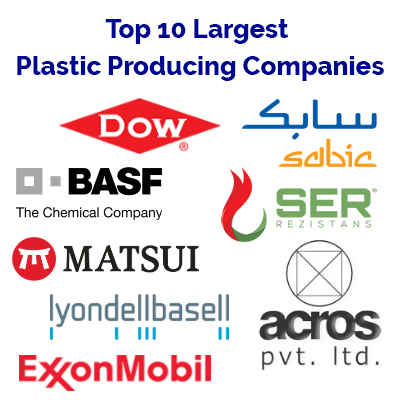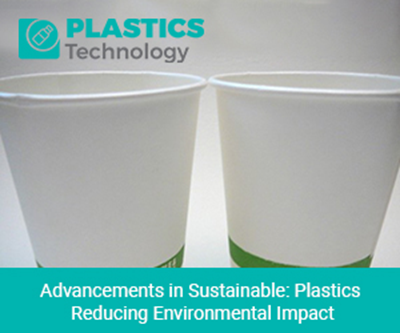The Rise of Smart Plastics: Revolutionizing Packaging and Manufacturing

The introduction of smart plastics has indeed ignited a significant transformation in both the packaging and manufacturing sectors. These cutting-edge materials, equipped with sensors and sophisticated capabilities, are fundamentally changing the way products are handled, monitored, and distributed across industries. This article will delve deeper into the profound impact that smart plastics are having on packaging and manufacturing processes, shedding light on their numerous advantages, diverse applications, and the exciting future trends they herald.
Smart plastics, characterized by their integration of sensors and data processing capabilities, represent a paradigm shift in how we approach packaging and manufacturing. These materials are not merely containers but active participants in ensuring product quality, safety, and efficiency throughout the supply chain. By constantly monitoring variables like temperature, humidity, and product integrity, smart plastics enable real-time insights that enhance decision-making and streamline operations.
One of the primary benefits of smart plastics lies in their ability to provide real-time monitoring and feedback. For instance, in the food industry, these materials can detect spoilage or contamination early on, minimizing waste and safeguarding consumer health. Similarly, in pharmaceuticals, smart plastics play a crucial role in maintaining the efficacy of medicines by ensuring they are stored under optimal conditions during transit and storage. Moreover, the traceability features of smart plastics are invaluable, particularly in industries where regulatory compliance and product authentication are paramount. With embedded RFID tags or QR codes, these materials enable precise tracking of products throughout their journey, enhancing transparency and accountability.
The customization potential of smart plastics is another significant advantage. Manufacturers can tailor these materials to specific packaging needs, incorporating features such as tamper-evident seals, interactive labels, and anti-counterfeiting measures. This not only enhances product security but also engages consumers through innovative packaging designs. In terms of sustainability, smart plastics are driving positive change by offering biodegradable or recyclable options. This aligns with global efforts towards eco-friendly practices and reduces the environmental footprint of packaging and manufacturing processes.
Looking ahead, the future of smart plastics is brimming with exciting possibilities. Advancements in nanotechnology will lead to even smaller and more efficient sensors, further enhancing the capabilities of these materials. Integration with blockchain technology will bolster security and traceability, while AI and machine learning algorithms will unlock predictive analytics and optimization opportunities.
In conclusion, smart plastics represent a revolutionary advancement in packaging and manufacturing, ushering in a new era of efficiency, sustainability, and innovation. As these materials continue to evolve and find broader applications, their impact on shaping the future of industries cannot be overstated.
Understanding Smart Plastics
Smart plastics, often referred to as intelligent or active plastics, represent a groundbreaking advancement in materials science. These polymers are not merely inert containers but sophisticated entities infused with a range of technological components. Sensors embedded within smart plastics enable them to perceive changes in their environment, while actuators allow them to respond dynamically to stimuli. Coupled with data processing capabilities, these functionalities empower smart plastics to interact intelligently with their surroundings.
Unlike traditional plastics that serve primarily as passive containers, smart plastics take on an active role in various processes. They contribute significantly to enhancing product safety by continuously monitoring factors like temperature, humidity, and other environmental variables. This real-time monitoring capability ensures that products remain within specified parameters, mitigating risks and ensuring quality control throughout their lifecycle.
Moreover, smart plastics play a crucial role in sustainability initiatives. By being designed for recyclability or biodegradability, they reduce the environmental impact associated with conventional plastic materials. Additionally, their ability to optimize resource usage, such as energy and materials, contributes to overall sustainability efforts in manufacturing and packaging industries.
The integration of sensors, actuators, and data processing capabilities within smart plastics represents a convergence of material science and advanced technology. This synergy not only improves operational efficiency but also opens up new possibilities for innovation across multiple sectors. As research and development in this field continue to evolve, smart plastics are poised to revolutionize various industries by offering unprecedented levels of functionality, adaptability, and environmental responsibility.
Benefits of Smart Plastics in Packaging
1. Real-Time Monitoring: Smart plastics can monitor various parameters such as temperature, humidity, and freshness in perishable goods. This real-time data ensures product integrity throughout the supply chain, reducing waste and enhancing consumer confidence.
2. Traceability: With embedded RFID tags or QR codes, smart plastics enable precise tracking and traceability of products. This is especially crucial in industries like pharmaceuticals and food, where compliance and safety are paramount.
3. Customization: Manufacturers can tailor smart plastics to specific packaging requirements, incorporating features like anti-counterfeiting measures, tamper-evident seals, and interactive labels for consumer engagement.
4. Environmental Sustainability: Some smart plastics are designed to be biodegradable or recyclable, aligning with sustainability goals and reducing environmental impact.
Applications across Industries
1. Food and Beverage
Smart plastics play a vital role in ensuring food safety and quality. From intelligent packaging that alerts consumers about expiration dates to active packaging that extends shelf life, these materials enhance the entire food supply chain.
2. Healthcare
In the healthcare sector, smart plastics facilitate the safe storage and transportation of pharmaceuticals, vaccines, and medical devices. Temperature-sensitive medications benefit from smart packaging that maintains optimal conditions during transit.
3. Manufacturing
Smart plastics are integrated into manufacturing processes for quality control and predictive maintenance. They can detect defects in products, monitor equipment performance, and streamline inventory management.
Future Trends and Innovations
1. Nano-Scale Sensors: Advancements in nanotechnology are miniaturizing sensors, allowing for more precise and cost-effective integration into smart plastics.
2. Blockchain Integration: Smart plastics combined with blockchain technology offer enhanced transparency and security, ideal for supply chain management and product authentication.
3. AI and Machine Learning: Machine learning algorithms analyze data collected by smart plastics, enabling predictive analytics, anomaly detection, and optimization of packaging designs.
Conclusion:
In conclusion, smart plastics are at the forefront of revolutionizing packaging and manufacturing industries. Their integration of sensors, data processing capabilities, and advanced functionalities marks a significant shift towards more intelligent and sustainable solutions. The benefits of real-time monitoring, traceability, customization, and environmental sustainability make smart plastics invaluable across various sectors, from food and healthcare to manufacturing. As technology continues to advance with nano-scale sensors, blockchain integration, and AI-driven analytics, the future of smart plastics holds immense promise for driving efficiency, innovation, and environmental responsibility. Embracing smart plastics is not just about adopting new materials but embracing a transformative approach to packaging and manufacturing that aligns with the demands of modern consumers and the imperatives of a sustainable future.



